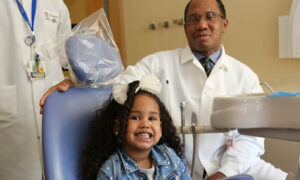
In many respects, the counselling process is like going to school. The individual not only gains new knowledge but also deepens their understanding of who they are. As part of therapy, it is often necessary to learn more about a specific ailment that the individual is affected by (e.g., depression, anxiety, eating disorders) to better comprehend treatment alternatives. Students can benefit from personal therapy in the following ways at brampton counselling centre
- better interpersonal and communication abilities
- Increase in self-acceptance and self-esteem; capacity to overcome self-defeating patterns of conduct.
- Angry alleviation from depression, anxiety, or other mental health disorders can be achieved by improved emotional expression and management
- greater self-assurance and capacity to make sound decisions; improved stress management; enhanced problem-solving and negotiation skills; and
- a better understanding of one’s own identity and mission
- Recognizing and correcting cognitive biases
When it comes to therapy, there are many misunderstandings-
- Having never been to a psychologist or therapist, you may be curious about what it’s like. Other things you’ve heard might not be true. Incorrect beliefs regarding counseling include the following.
- There is something wrong with me if I ask for help. I’m either a freak or a broken person- There are medical concerns with both physical sickness and mental illness and addiction. Cancer patients and flu patients aren’t considered “broken” by most people.
- I’m not going to get any help from anyone. Help isn’t something I’m due-Mental illness affects one in four American people at some point in their lives. There are a lot of individuals who know who are here to listen and help. You are entitled to a sense of well-being.
- You’ll take me to the hospital if I show up for an appointment- Students are typically afraid of being hospitalized or being requested to take time off if they confess that they are contemplating suicide. While the health and safety of our students is the College’s priority, we recognize that many students have suicidal thoughts but never act on them. To meet the requirements of our kids, we collaborate with them to develop a strategy to secure their safety.
- There is a good chance that they’ll put me on medication that will cause me to get hazy, and I won’t be able to quit taking it- Some mental health conditions need short- or long-term pharmaceutical regimes, much as physical ailments. In the right hands, it may be a valuable therapy tool, but it should never rob you of your sense of self or power over your recovery.
- I don’t think I’ll need therapy if I just work harder-Treatment for mental illness and substance misuse is available to everyone with a medical condition that necessitates it. Ignoring the issue of striving harder will not help.
- If I ask for aid, others will view me as less of a person every day, we at Coe strive tirelessly to dispel this misperception. To that end, even as we promote open communication amongst students and the people around them about their health, we also protect their privacy. According to the 2017 ACHA poll, 46 percent of Coe students had sought out counseling at some point.





